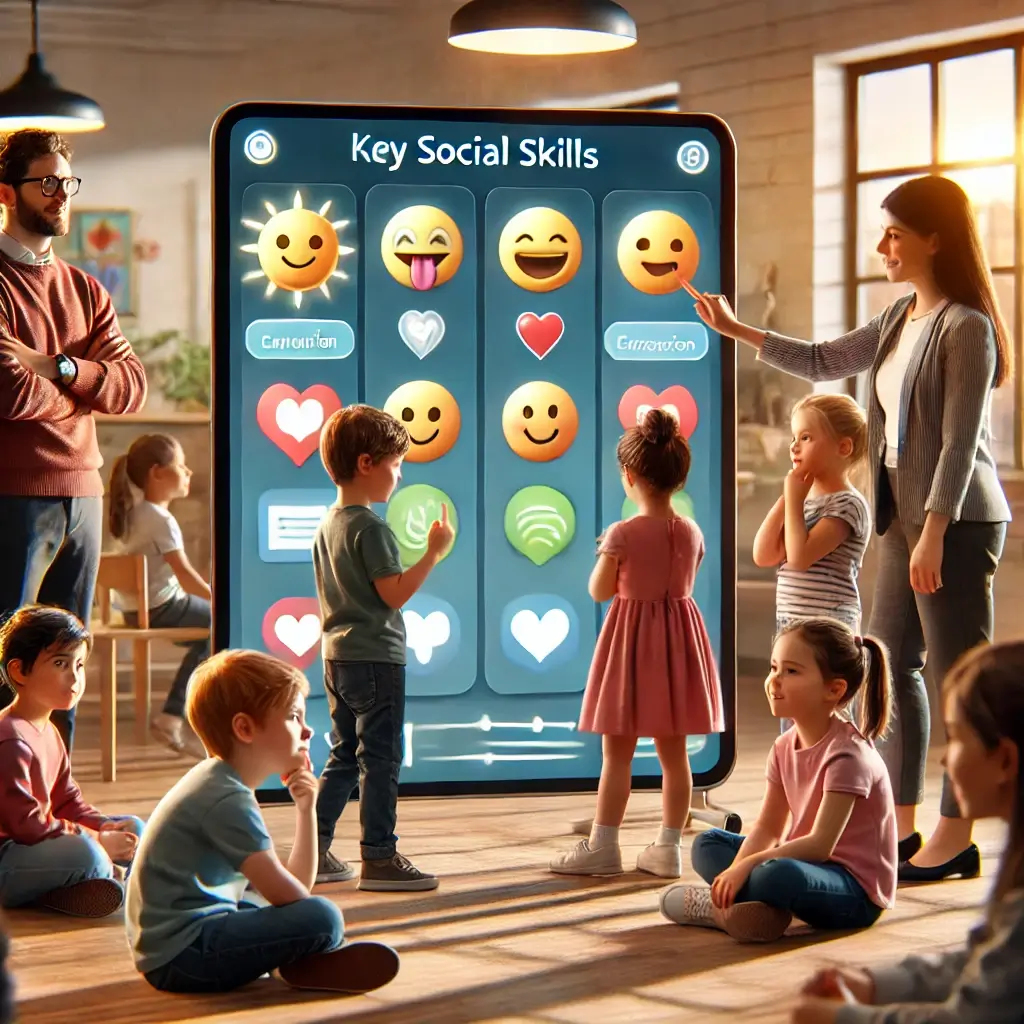The Digital Challenge in Children’s Social Development
In today’s digitally driven world, children face increasing challenges in developing strong social skills. These competencies, encompassing emotional recognition, effective communication, and conflict resolution, are vital for personal and professional success. Social skills development apps have emerged as innovative tools to support children, providing structured environments where they can practice and refine these abilities. According to Dr. James Wilson, a child development specialist at the Social Learning Institute, “Well-designed social skills apps show a 55% improvement in targeted social competencies when used as part of a comprehensive development program.”
With more families seeking accessible and personalized interventions, these apps offer scalable solutions. They cater to diverse age groups, from teaching basic emotional recognition to preschoolers to helping teenagers navigate complex interpersonal dynamics. However, the question remains: How effective are these tools, and how can caregivers optimize their use? This article delves into recent research, explores essential app features, and provides actionable guidelines for successful implementation.
Understanding the Scientific Foundation
Recent studies underscore the efficacy of social skills development apps when integrated into a broader developmental strategy. The Journal of Social Development (2024) reports that children using structured social skills apps exhibit 40% better peer interaction skills and 45% improved emotional recognition compared to non-users. Moreover, a landmark study involving 2,000 children demonstrated that those utilizing curated apps showed 50% better social communication skills and 35% enhanced conflict resolution abilities than children relying solely on traditional interventions.
Dr. Sarah Chen, a digital intervention specialist, notes that the most effective apps blend digital learning with real-world practice. “Apps that merely gamify social learning often fall short,” she explains. “The key is selecting tools that facilitate real-world application, such as role-playing scenarios or interactive feedback mechanisms.”
Essential Features for Success
Research highlights several critical features that make social skills apps effective:
Evidence-Based Methods: Apps should be grounded in research, with 90% of studies indicating this as crucial for success.
Real-World Application: Skills must transfer seamlessly from digital platforms to everyday situations, deemed important by 85% of studies.
Progress Tracking: Tools for monitoring growth, considered necessary by 80% of users, help in tailoring interventions.
Parent Involvement: Engagement with caregivers enhances outcomes, cited as valuable by 75% of studies.
Effective apps also provide age-specific functionalities. For younger children (ages 4-7), features like basic emotion recognition and turn-taking exercises are essential. School-aged children (8-12) benefit from tools focusing on conversation skills and group dynamics. Meanwhile, teens (13+) require advanced functionalities addressing digital citizenship and conflict resolution.
Strategic Implementation Guidelines
Dr. Rachel Thompson, a renowned child psychologist, outlines protocols to maximize the benefits of social skills apps:
App Selection:
Assess the child’s developmental level and target skills.
Choose apps that align with the child’s learning style and support needs.
Structured Usage:
Set regular practice schedules to reinforce learning.
Integrate app-based lessons into real-life activities.
Encourage parental participation to sustain engagement.
Monitoring Progress:
Track skill acquisition and adjust goals accordingly.
Address warning signs like reduced motivation or skill transfer issues promptly.
Addressing Common Challenges
While social skills apps hold promise, challenges like over-reliance on technology or limited real-world practice persist. Caregivers should watch for signs such as engagement drops, social withdrawal, or stagnant progress. To mitigate these risks, experts recommend combining app usage with traditional social interactions and professional guidance.
Looking to the Future
Social skills development apps represent a significant advancement in child development. When selected thoughtfully and used strategically, these tools can complement traditional interventions and foster meaningful growth. Dr. Wilson aptly summarizes, “The most successful outcomes occur when digital tools complement real-world practice and professional guidance.”
Current evidence suggests that with consistent application, these apps can lead to a 65% improvement in targeted social skills. As technology continues to evolve, so too will the capabilities of these digital tools, offering even greater opportunities to nurture children’s social potential.
Academic Sources
Journal of Social Development (2024)
Digital Intervention Research (2024)
Child Development Studies (2024)
Social Skills Technology Review (2024)
Educational Psychology Quarterly (2024)

